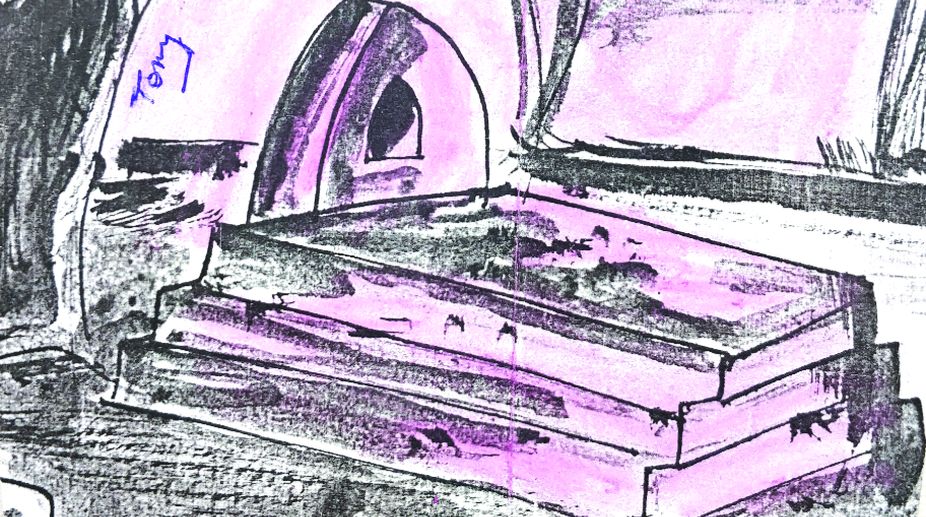Filling up a bucket, as the tap trickles in a DDA colony, can make one lapse into a reverie. Siraj Bhai was a carpenter in the MES Department of the Army and, after he returned from work in the evening, would try to relax while filling up a few buckets of water from the public tap.
He would sit chin-cupped-in-hand, contemplating the trickle and wondering how long it would take to fill up the first “balti”, with two others awaiting their turn, after which he had to hew some wood for his begum’s “chullah”. What he thought about can only be conjectured: probably the hardship of bringing up a big family during the expensive World War years and making ends meet on a small salary?
Sirajuddin Qureshi was a resident of Kammu Gali in an old house where his grandfather, a nonagenarian, who had witnessed the 1857 upheaval, lay half-dead in the “deori”, or porch, his grey beard badly in need of trimming. In the next house stayed Bhai Sahib Ameeruddin, elder brother of Sirajuddin, who practised as a homoeopath after retiring as the Munshi of the Civil Courts magistrate, Mr Ball, who later migrated to Durban with his pretty daughter, who drew a huge crowd whenever she danced at the Agra club.
Advertisement
Bhai Sahib was better off than his four younger brothers and tried to help them a bit, employing one of them as his compounder. While Jamaluddin, the youngest, managed to get a job in Vazir Sultan Tobacco Co, Hyderabad. His wife was childless but after she was electrocuted, Bhai Sahib married again and his second wife gave birth to a daughter, Farkunda, who must be a grandmother now in Karachi.
Sirajuddin also migrated there in the 1950s after the sudden death of his elder son Fakko (Fakruddin). His second son, Raffo (Rafiuddin) also left with him, leaving the latter’s gay friend Allaudin broken-hearted. Raffo’s photo, however, kept hanging in his water kiosk-cum-living room till his death in the 1970s as there was not a day when he did not remember Raffo, who used to have his “kulhar” of milk and rabri every evening at Allauddin’s expense from a monthly account he had at Hardyal’s shop.
Now the sabeel (water-kiosk) is no longer there in Ghattia, nor the tamarind tree that shaded the Sayyid Baba’s grave. But the “takia” or the holy man’s abode, survives as a desolate spot. Such thoughts come to mind, especially in summer, when the water supply in many Delhi locatities is just a trickle and the bucket takes long to fill. Like Siraj Bhai, the wait no doubt seems worthwhile, for dripping water can dilute worries too as even Shelley realised!
Advertisement










